Interpreters
Current Interpreters
Thank you for being an interpreter with one of our interpreter banks. Because of you, the Washington metropolitan area is a safer and more welcoming place to live, no matter the language.
Your work helps people access the food stamps that they are entitled to, get repairs made in their apartments, receive counseling to heal and recover after a violent attack, and do many other things. All of us at Ayuda appreciate the role that you play in improving language access. We value our partnership with you.
If you ever have questions or concerns about your work with Ayuda, please contact us at [email protected].
If your concerns are not adequately addressed, please contact Ayuda’s Language Access Director, Marilyn Lovo, at [email protected].
Potential Interpreters
If you are an interpreter who is passionate about helping people, we invite you to work with us at Ayuda. You will receive paid assignments to help people in need of legal assistance or to help victims of crime who are in need of recovery services. We offer opportunities in two language access interpreter banks.
As an interpreter for our Community Legal Interpreter Bank, you will work with lawyers and their low-income clients during one-on-one meetings outside of court. In order to work for the bank, you must:
As an interpreter for our Community Legal Interpreter Bank, you will work with lawyers and their low-income clients during one-on-one meetings outside of court. In order to work for the bank, you must:
-
Have already completed 40 hours of training in interpretation.
-
Complete training on how to work with lawyers in and out of court settings. Some examples include The Language of Justice, Specialist Certificate: Legal or Foundations of Legal Interpreting for American Sign Language and Certified Deaf interpreters, etc.
-
Demonstrate proficiency in English and in your working languages as an interpreter.
To learn more about the policies and procedures regarding working for the Community Legal Interpreter Bank, please visit our webpage for interpreters currently working for the Bank.
If you would like to apply to work for the Community Legal Interpreter Bank, please email [email protected] so that we may conduct a preliminary screening to determine whether your training and experience qualify you to apply to work for the Bank.
Please attach to the email a copy of your resume and any proof of credentials. In the body of the email, please include your contact information, working language(s), and the name of Bank for which you are interested in working.
As an interpreter for our Victim Services Interpreter Bank, you will work with victims of crime and their social workers, therapists, and nurses in the DC Metropolitan area during sessions focused on the recovery of the victim.
The majority of assignments occur during regular business hours, but a small number of assignments do occur during nights and weekends (including a limited number of assignments in the middle of the night).
Although most assignments are scheduled in advance, the Bank is designed to offer assistance on an emergency basis as well. Interpreters who accept emergency assignments or assignments during off hours can negotiate to receive compensation at a higher rate.
As an interpreter for our Victim Services Interpreter Bank, you must:
-
Have already completed 40 hours of training in interpretation. If you have not, visit this page to learn more about getting foundation training.
-
Have taken victim or trauma-centered training to be able to work with victims of crime.
-
Demonstrate proficiency in English and in your working languages as an interpreter.
To learn more about the policies and procedures regarding working for the Victim Services Interpreter Bank, please read our frequently asked questions.
If you would like to apply to work for the Victim Services Interpreter Bank, please email [email protected] so that we may conduct a preliminary screening to determine whether your training and experience qualify you to apply to work for the Bank.
Please attach to the email a copy of your resume and any proof of credentials. In the body of the email, please include your contact information, working language(s), and the name of Bank for which you are interested in working.
The Breaking Silence training was developed by Ayuda and Cross-Cultural Communications with funding from the DC Office of Victim Services and Justice Grants and with input from victim service providers in Washington, DC. The training has been delivered five times since 2014.
Ayuda recognizes that there are many limited-English proficient and Deaf/Hard of Hearing residents in Maryland who fall victim to sexual assault, domestic violence, human trafficking, hate crimes, the death of a loved one due to homicide, and many other crimes. These individuals may need a forensic medical exam, therapy, counseling, safety planning, relocation assistance, and other vital services. A language barrier should not prevent these survivors from receiving compassionate and thorough assistance.
Topics covered during the training may include:
-
Wellness techniques to reduce stress and trauma before, during, and after victim service interviews.
-
Self-care plan for interpreting in victim services.
-
Appropriate interpreting protocols when interpreting for victim services.
-
Common cultural communities and cultural concerns for crime victims in the Maryland area.
-
Skills practice with realistic scenarios involving relevant terminology taken from the training manual.
The Language of Justice curriculum was developed by Ayuda and Cross-Cultural Communications (CCC) with funding from the DC Bar Foundation (DCBF), with input from experts around the country. The first training was offered in 2008. The training focuses on the skills required for an interpreter to work with a lawyer and the lawyer’s client in an out-of-court setting.
DCBF, IJLS, and several other funding sources provide funding to Ayuda to administer the Community Legal Interpreter Bank — an interpreter service of highly trained interpreters who work with public interest and pro bono lawyers and their clients in out-of-court settings.
Participants in the training will learn about the ethics and skills of legal interpretation in the attorney-client context focusing on:
- Duty to maintain confidentiality
- Protecting attorney-client privilege
- Avoiding the unauthorized practice of law
- Appropriate techniques for linguistic mediation
- Overview of the US legal system, including issues most likely to confuse individuals unfamiliar with the system
- Interpreter skills, and terminology development, with respect to the legal field
- Role-playing and sample sight translations based on actual attorney-client meetings
Foundation Training
Click below to learn more about getting foundation training to achieve the required 40 hours of training in interpretation.
Victim Services Interpreter Bank FAQ
To learn more about the policies and procedures regarding working for the Victim Services Interpreter Bank

